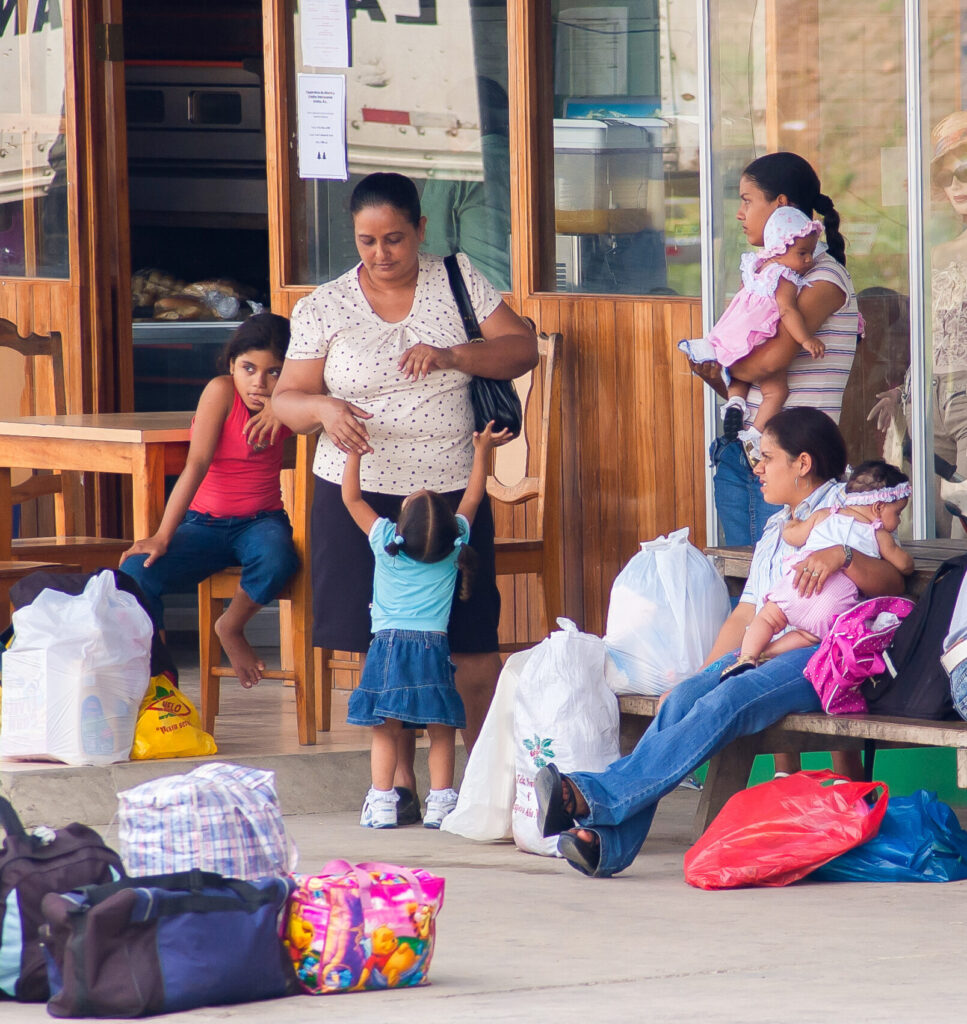
In recent years, practitioners have touted the link between migration and technology for increasing financial inclusion, integration, and livelihoods support. Migrants themselves have developed applications to support integration, in what some call the “app-ification of migration” or “migrant tech.” Humanitarian and development agencies have helmed the push for migrant tech, especially with regard to mobile cash transfers.
Also stepping into the “technology gap” — perceived or real — are developers, who create applications for every use under the sun: returnee integration, mobile “game-ified” bilingual education, gender-based violence prevention. The International Organization for Migration (IOM) recently joined the game with its MigApp, which provides information, a money transfer service, and translation. Governments and organizations like the OECD have been quick to laud such interventions as efforts to make humanitarian aid future ready.
The most useful digital tools for migrants are not migrant tech at all.
Few doubt that mobile technology occupies a key role in migrant life. Yet our research with migrants in Quito, Ecuador, suggests that in spite of efforts to “app-ify” migrant integration, the most useful digital tools for migrants are not migrant tech at all. Instead, migrants take off-the-shelf applications such as WhatsApp and flex them to fit their needs.
The “WhatsApp Bank”: Stories from Migrants in Quito
In Quito, the “Bangladeshi Club” meets once a week, rotating through different Bangladeshi restaurants. Only about 25 Bangladeshi migrants live in the city, so it is easy to stay in touch. They take advantage of a WhatsApp group chat to coordinate their weekly meetings where, between food and conversation, everyone has the chance to benefit from a communal fund. Each week all members contribute to the fund and should anyone fall on hard times, they can petition the club for a loan.
Formal financial inclusion is unavailable to many migrants in the Ecuadorian capital, not just ones from Bangladesh. As of 2016, the country had among the lowest number of users of mobile money services in Latin America. The dearth of reliable and robust digital financial services (DFS) in Ecuador pushes migrants to adapt.
Nowhere was the inventive use of WhatsApp clearer than among Venezuelan migrants in need of remittance services. Runaway inflation in Venezuela, coupled with tight DFS regulations in Ecuador, encourages creative thinking among migrants hoping to send money home. Remittances to Venezuela take three forms: in-kind, cash, or via wire or bank transfer. Migrants least preferred the latter option. Due to severe inflation and perceived corruption in Venezuela, money transferred to Venezuelan banks immediately loses value. Thus, alternative options that rely heavily on WhatsApp, and whose legality might be in question, have gained traction.
In one typical example, a Venezuelan migrant wishing to send remittances will connect with a Colombian runner through WhatsApp word-of-mouth networks. Over WhatsApp, the migrant tells the runner how much they would like to remit. The runner responds with a price for services rendered, plus extra for the border bribe they will certainly pay. The migrant then wires money to the runner in Colombia, who performs one of two actions: withdraw cash or buy goods.
In the first scenario, the runner takes out cash and smuggles it into Venezuela. They then transport the package to the intended recipient. In the second, more common case, the runner uses the remittance money to purchase essential goods in Colombia. They then ferry the goods across the border or tap agent networks to make the delivery. In both cases, WhatsApp plays an essential role.
WhatsApp supports business growth, marketing, and development for migrants in Ecuador.
WhatsApp also supports business growth, marketing, and development for migrants in Ecuador. Venezuelan migrant Rosa operates her direct-to-order Venezuelan restaurant via WhatsApp. Her clients communicate their home-country cravings directly to her, and Rosa shops for the ingredients and prepares the meals made-to-order. In this way, she fills a very specific community niche and has built a loyal base of clients who depend upon her customizable Venezuelan food. WhatsApp enabled her business to boom.
What’s Next?
The centrality of WhatsApp to migrant social and economic life in Quito begs the question: Is it really necessary to “app-ify” migration?
Our research offers a simple response: no. This thinking aligns with a small but growing chorus of concerned researchers. A RAND Corporation study of refugee technology use in the Middle East and Greece confirms that migrants rely “mainly on mainstream technology developed for more general audiences,” and concludes that the influx of applications and “innovations” is simply “too much.” In the Mediterranean, research at The Fletcher School of Law and Diplomacy confirmed those findings. Migrants frequently deployed applications used for maps, currency conversion, language translation, and weather. Notably, none of these applications were created specifically for migrants.
The RAND researchers recommend that humanitarian and development agencies invest more in working within mainstream platforms and less on developing niche products. This includes removing access barriers, scaling internet connectivity, managing data privacy, promoting digital literacy, and improving mobile phone penetration. These are all productive activities that agencies can do—and already do well. Why reinvent the wheel when already-popular migrant platforms exist? Our answer: don’t.
Migrants are the ultimate connectors. They have been using technology for years and will continue to do so, but in their own way and at their own pace. Humanitarian agencies claim that new technologies strengthen migrant autonomy, yet community-developed online systems already lend migrants voice.
Technology will continue to transform how migrants work, move, and connect. No doubt, off-the-shelf technology has made migration a bit more straightforward. Our job as humanitarians is not to invent new technology. Our job, on behalf of migrants, is to help existing technology go the distance. Let’s get to work.









